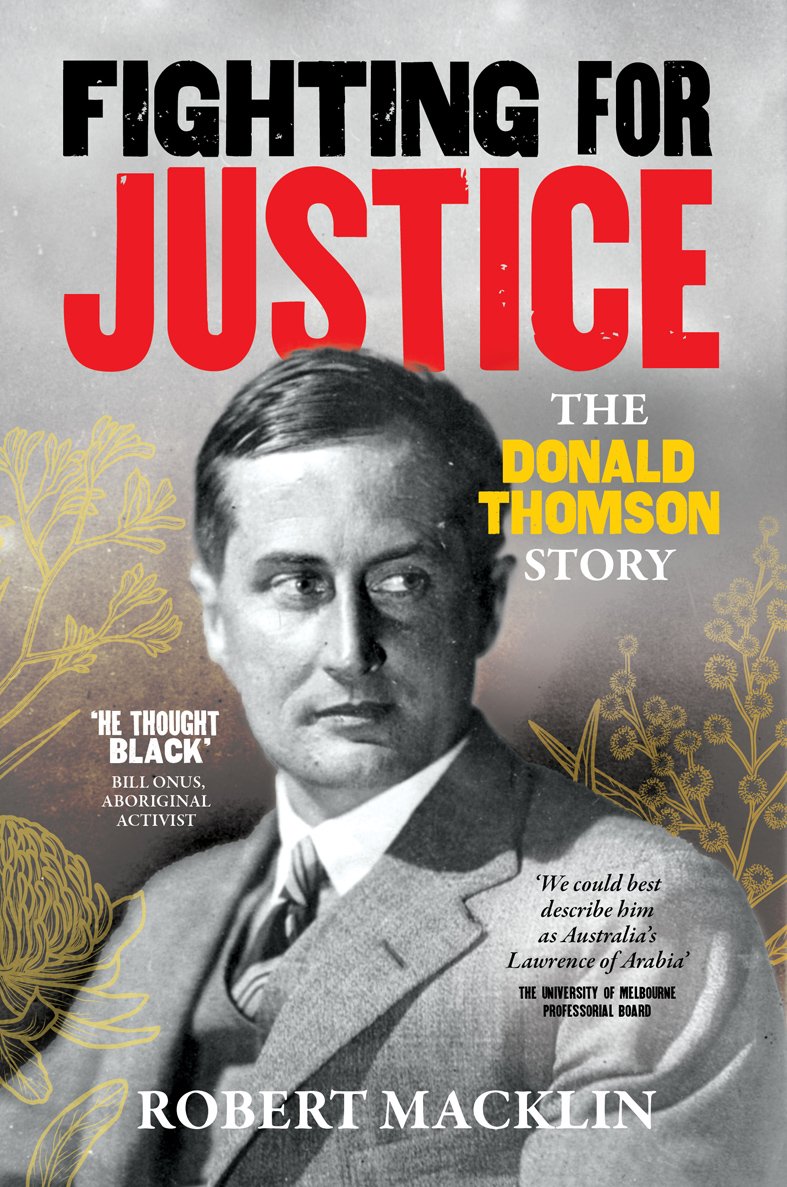 Image 1 of 1
Image 1 of 1


Fighting For Justice: The Donald Thomson Story
In 1911, Donald Thomson at 10 years old was a lone figure in Melbourne’s Bayside, with its billabongs and creeks meandering to the sea. In his ‘Naturalist’s Diary’, he recorded his collection of wildflowers to wattles, seabirds to tiny blue wrens, mammals and reptiles, to fish and insects of every shape and hue. By 16, he was part-time editor of a national nature magazine.
As Australia’s first home-grown anthropologist, he met the only people who truly shared his worldview: the First Nations people of northern and central Australia. He wrote, ‘We learned much about their language, social life, and customs, and of their elaborate rituals and tabus … and we grew to love these people.’ It was this love for a world threatened with extinction that drove Donald Thomson for the rest of his life, fighting for justice amid a threatened invasion and the reality of a hostile and unrepentant occupation.
The UNESCO-inscribed ‘Thomson Collection’, which the Thomson family donated to Museums Victoria in 2024, documents more than 90 Indigenous communities and includes 11,000 photographs, 7620 metres of film, and 2500 pages of meticulously recorded field notes, making it one of the world’s largest ethnographic collections. One of these photos – a group of ten men in their bark canoes on the Arafura Swamp – inspired Rolf de Heer’s critically acclaimed 2006 film Ten Canoes.
Thomson is remembered as a friend of the Yolngu people and a champion of understanding Indigenous Australian culture and society by non-Indigenous Australians.
‘A passionate and compassionate exploration of an important Australian who despite clashes with the academy, missionaries, and government carried his fight for Indigenous justice and rights.’ – Rita Metzenrath, AIATSIS Librarian, Indigenous rights activist and co-author of Big Sickness Come Ailan
In 1911, Donald Thomson at 10 years old was a lone figure in Melbourne’s Bayside, with its billabongs and creeks meandering to the sea. In his ‘Naturalist’s Diary’, he recorded his collection of wildflowers to wattles, seabirds to tiny blue wrens, mammals and reptiles, to fish and insects of every shape and hue. By 16, he was part-time editor of a national nature magazine.
As Australia’s first home-grown anthropologist, he met the only people who truly shared his worldview: the First Nations people of northern and central Australia. He wrote, ‘We learned much about their language, social life, and customs, and of their elaborate rituals and tabus … and we grew to love these people.’ It was this love for a world threatened with extinction that drove Donald Thomson for the rest of his life, fighting for justice amid a threatened invasion and the reality of a hostile and unrepentant occupation.
The UNESCO-inscribed ‘Thomson Collection’, which the Thomson family donated to Museums Victoria in 2024, documents more than 90 Indigenous communities and includes 11,000 photographs, 7620 metres of film, and 2500 pages of meticulously recorded field notes, making it one of the world’s largest ethnographic collections. One of these photos – a group of ten men in their bark canoes on the Arafura Swamp – inspired Rolf de Heer’s critically acclaimed 2006 film Ten Canoes.
Thomson is remembered as a friend of the Yolngu people and a champion of understanding Indigenous Australian culture and society by non-Indigenous Australians.
‘A passionate and compassionate exploration of an important Australian who despite clashes with the academy, missionaries, and government carried his fight for Indigenous justice and rights.’ – Rita Metzenrath, AIATSIS Librarian, Indigenous rights activist and co-author of Big Sickness Come Ailan
